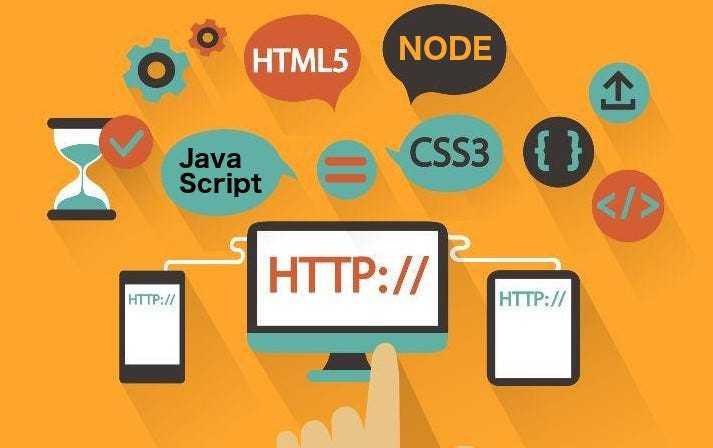Explore the World's Best Ideas
Join today and uncover 100+ curated journeys from 50+ topics. Unlock access to our mobile app with extensive features.
Consider becoming a developer
If you’re considering becoming a developer but aren’t sure whether it’s a good idea, here are a few things to think about:
- There is a demand for developers. The U.S. Bureau of Labour Statistics estimates a 17% rise between 2014 and 2024.
- The work can be varied. As a developer, you can work on a huge range of projects from e-commerce websites to computer games, from mobile apps to artificial intelligence.
- The work is flexible. There is an increasing number of remote developers who work from home or travelling the world.
38
220 reads
How to become a developer
Being a developer requires many skills, and there are two major factors in developing a skill:
- Effective practice
- Support from senior developers.
You need to maximise both of these to help you become the best developer you can be.
38
297 reads
How to fast track your developer career
- Coding Bootcamps: These are great because they are designed to take you from little or no coding experience to job-ready in 3 months. It means lots of effective practice and tons of help from the developers running the bootcamp.
- Get a Mentor: When you start coding, a mentor could be ideal for checking in on you and keeping you on track. But getting a mentor is hard because it's a lot of extra work for them.
- Get a Job as a Developer: Working as a developer will expose you to the side of development that you'll not see while studying.
39
127 reads
Starting a plan
As not everyone can afford to go to a bootcamp or knows someone who’ll mentor them, here's a plan for how to get your first developer job.
Web development is the easiest to get into. Requirements that appear often in job adverts will likely be:
- Front end knowledge: HTML, CSS, and JavaScript
- Ability to create responsive websites
- A portfolio demonstrating your experience and skills
- Understanding of version control
42
187 reads
HTML and CSS
A strong understanding of HTML and CSS will improve your chances of getting a job.
Freecodecamp is a website that teaches you everything to do with Website development. It takes you step by step through mini-lessons.
- Start with The Responsive Web Design Certification and the Basic HTML and HTML5 and basic CSS sections.
- To improve CSS, complete the Applied Visual Design section up to Create a More Complex Shape Using CSS and HTML, then do all of Responsive Web Design and CSS Flexbox.
- Practice by completing Responsive Web Design Projects.
44
138 reads
Version Control
Version control is a system where you can see what you've changed and at what point.
- To learn how to install Git, create a Github account and work with Git. You could learn this before the Html and CSS design projects.
- Try to do all of your projects in a local editor (like VS Code) and Upload them to Codepen when you’re finished.
- You want to be able to create a Github repository, link that to a local folder, commit work that you’ve done, and push that up to Github.
42
177 reads
JavaScript
It is the language that allows you to change a static website to an interactive one.
To learn Javascript, do the Javascript Algorithms and data structures certification on Freecodecamp. If you work as a web developer, you’ll probably spend most of your time writing Javascript.
41
313 reads
Building Your Portfolio
You will already have 10 projects — 5 Html and CSS and 5 Javascript. Ensure you've got these all in version control and uploaded to GitHub to show how well you work.
You can now go back to the portfolio site that you built and update it. You can then use your new Javascript skills to add interaction to the page.
43
253 reads
The Job Search
You will need a short CV or résumé that will highlight your strengths. Your CV should contain:
- A brief description about you
- Your education
- Any experience you have
- Top-level list of your skills
- Links to contact you and view your Portfolio page
You should also have a portfolio website that could be hosted as a GitHub page. Apply only to jobs where you can meet 70%+ of the requirements.
42
124 reads
Using Recruiters
A lot of developers talk about how awful recruiters are, but make sure to use them.
Start with the large sites like Indeed and Total Jobs, but try to find the smaller job sites, too. If they ask you about jobs that are way above or below your desired job, thank them and decline but remind them of the type of job you are looking for.
39
126 reads
Continued Improvement
You probably won’t get an interview and job offer in the first weeks of applying for jobs. This gives you time to improve. Adding extra skills will increase your chances of getting an interview. Some skills to learn:
- Learn a library: JavaScript libraries can make your life easier. jQuery is a popular library.
- Completing the HTML and CSS lessons from freeCodeCamp.
- Advance Your CSS (optional). The Daily CSS course is excellent if you like the design and style side of front end development.
- Learn how JavaScript works. It helps you to become a much better developer.
- Build projects.
40
94 reads
Interviews
If you follow this advice, you stand a better chance of getting an offer.
- Know your CV
- Know about the company
- Practice your skills
- Be early, polite, and confident
- Ask Questions
- Follow up after the interview
42
205 reads
IDEAS CURATED BY
Carla Young's ideas are part of this journey:
Learn more about career with this collection
Understanding the importance of constructive criticism
How to receive constructive criticism positively
How to use constructive criticism to improve performance
Related collections
Similar ideas
7 ideas
The 7 Most Essential Frontend Web Development Tools in 2022
careerfoundry.com
6 ideas
How to Become a Successful Freelance Web Developer?
fireart.studio
Read & Learn
20x Faster
without
deepstash
with
deepstash
with
deepstash
Personalized microlearning
—
100+ Learning Journeys
—
Access to 200,000+ ideas
—
Access to the mobile app
—
Unlimited idea saving
—
—
Unlimited history
—
—
Unlimited listening to ideas
—
—
Downloading & offline access
—
—
Supercharge your mind with one idea per day
Enter your email and spend 1 minute every day to learn something new.
I agree to receive email updates




